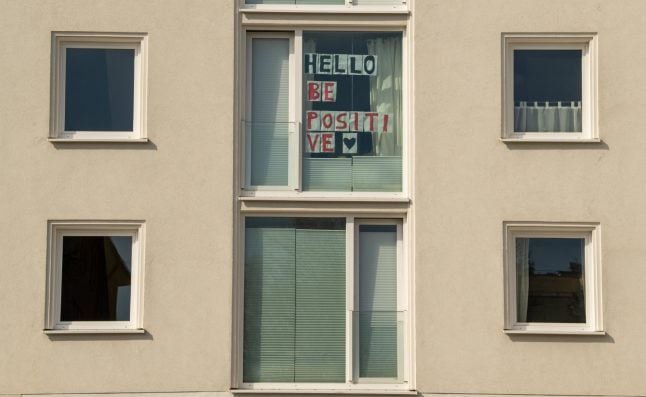There's group yoga in the morning, homemade pizza at night and always someone with toilet paper. For six
German students in a Dortmund flat, the COVID-19 lockdown has its upsides.
With no classes to attend and their social lives interrupted, four young women and two men sharing a three-bedroom flat are suddenly enjoying a lot of quality time, as they join millions of Germans in staying home to slow the pandemic.
“I'm so glad I don't live alone right now, the walls would be closing in on me,” said 22-year-old IT student Thilo.
“There's always something to do here,” his girlfriend Lana, 21, agreed.
On Friday, the gang gathered in the kitchen to make pizza from scratch, everyone contributing ingredients. Afterwards, they watched a movie beamed onto their living room wall.
As many universities have delayed the start of their semesters, the flatmates have been able to dedicate plenty of down-time to honing their video game skills, with “Mario Kart” a group favourite.
Large jigsaw puzzles and board games have also helped while away the hours.
And when Celine's pixie cut needed a trim, Rike gave it her best shot, turning the kitchen into a makeshift salon.
Keen to keep fit despite the gym being closed, the group have started doing morning yoga sessions together.
“That's been a new discovery for us,” said Thilo.
READ ALSO: What's the latest on coronavirus in Germany and what do I need to know?
 People have been playing musical instruments from their windows, like this family in Frankfurt Oder. Photo: DPA
People have been playing musical instruments from their windows, like this family in Frankfurt Oder. Photo: DPA
The chore schedule has gone out the window meanwhile, written for a different era when people weren't inside all day.
Cleaning up after yourself and keeping the shared spaces tidy has become more important, Thilo explained. “But at least we can talk things out right away since we're all here.”
After more than three years in the flatshare, Thilo said he already knew his friends quite well. But the lockdown combined with all the free time has clearly exposed the early birds and the night owls.
“Some days I've been up for three hours before anyone else has even got out of bed,” he laughed.
And while the rest of the nation has frantically stocked up on toilet paper, the housemates in Dortmund had a different priority.
“We're not too worried about toilet paper, we should have enough for now. But we have one flatmate who loves eating pasta so we rushed out to buy a couple of extra packs,” said Thilo.
READ ALSO: Which parts of Germany are worst affected by coronavirus?



 Please whitelist us to continue reading.
Please whitelist us to continue reading.
Member comments